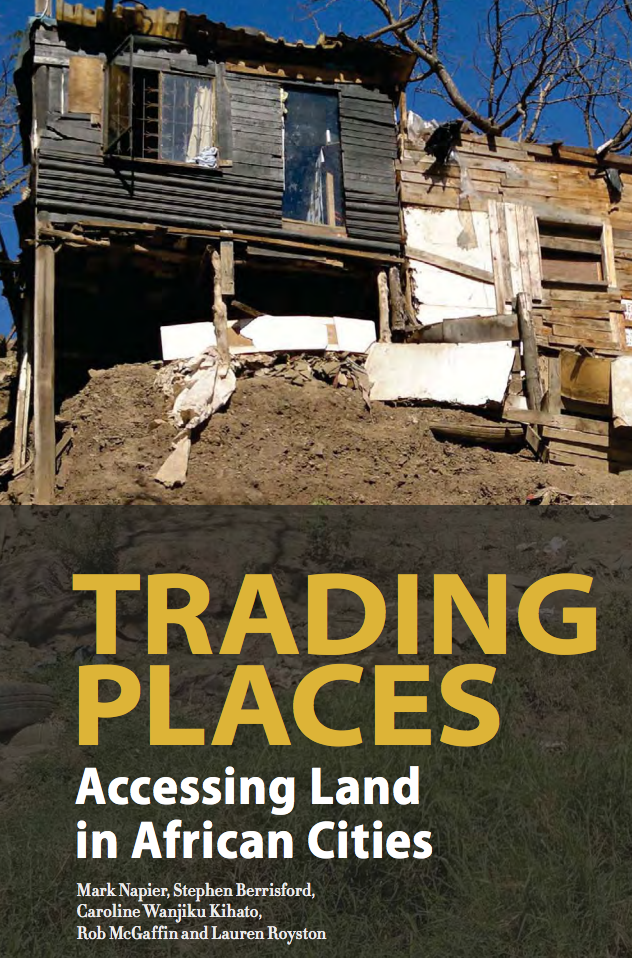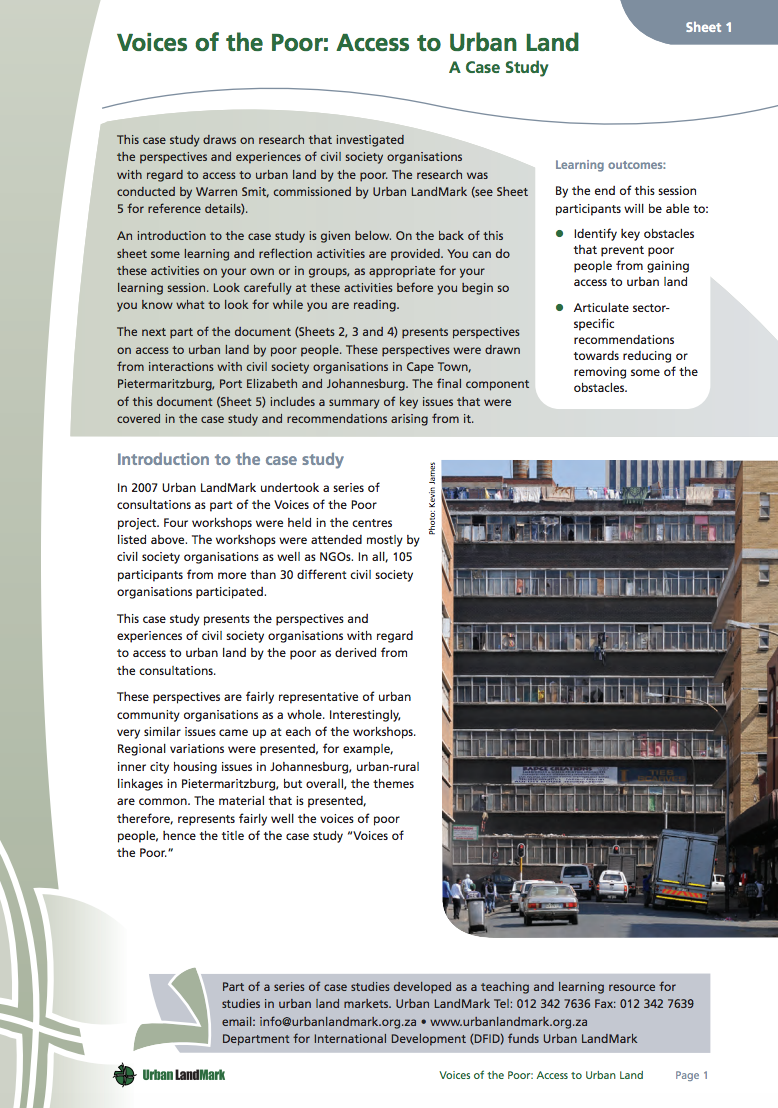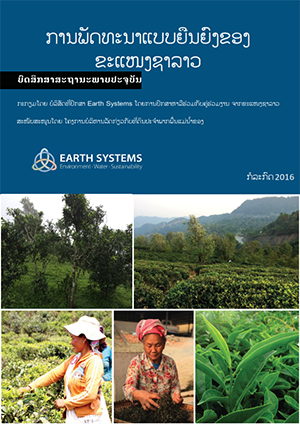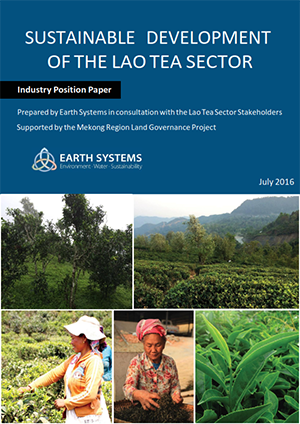Details
Location
Contributions
Displaying 1041 - 1050 of 2403Customary Tenure in Man-Hsat Village, Northern Shan State, Myanmar
The poster presents an overview of land, livelihoods and customary practices in Man-hsat Village, Northern Shan State, Myanmar. This poster is one of a five village case studies produced by partner organizations during field-based training on how to document customary tenure systems, supported by MRLG.
The Political Economy of Land Governance in Lao PDR
This country level analysis addresses land governance in Laos in two ways. First, it summarises what the existing body of knowledge tells us about power and configurations that shape access to and exclusion from land, particularly among smallholders, the rural poor, ethnic minorities and women. Second, it draws upon existing literature and expert assessment to provide a preliminary analysis of the openings for and obstacles to land governance reform afforded by the political economic structures and dynamics in the country.
The Neoliberal Agricultural Modernization Model: A Fundamental Cause for Large-Scale Land Acquisition and Counter Land Reform Policies in the Mekong Region
This conference paper examines how the ideology and programmatic set of policies coined in the term ‘neoliberal modernization’ applies to agriculture and practices in the Mekong region.
Trading Places: Accessing Land in African Cities
Trading Places is about urban land markets in African cities. It explores how local practice, land governance and markets interact to shape the ways that people at society's margins access land to build their livelihoods.
The authors argue that the problem is not with markets per se, but in the unequal ways in which market access is structured. They make the case for more equal access to urban land markets, not only for ethical reasons, but because it makes economic sense for growing cities and towns.
Voices of the Poor: Access to Urban Land
In 2007 Urban LandMark undertook a series of consultations as part of the Voices of the Poor project. Four workshops were held in the centres listed above. The workshops were attended mostly by civil society organisations as well as NGOs. In all, 105 participants from more than 30 different civil society organisations participated. This case study presents the perspectives and experiences of civil society organisations with regard to access to urban land by the poor as derived from the consultations. These perspectives are fairly representative of urban community organisations as a whole.
Challenges in Managing State Land in Cambodia: Addressing Competing Interests for Lands Inside Protected Areas (PAs)
Protected area management is threatened by weak articulation between the goals for conservation, national development and local livelihoods. This discussion note examines the competing interests for lands inside Cambodian Protected Areas and makes suggestions for policy considerations.
Customary Tenure in Myanmar
This video is based on the combined efforts of 5 civil society organizations and ethnic youth organizations (88 Generation, Point, FLU, KYO&TSYU) to document local Customary Tenure practices in different villages throughout the country, in the states of Shan North, Shan South, Magwe and Kayah, with the support of MRLG. It’s explains how they implemented the documentation of Customary Tenure practices. The video also explains what customary tenure is, based on the local communities point of view and practices, and why CT recognition is important to them.
The Political Economy of Land Governance in Viet Nam
This country level analysis addresses land governance in Viet Nam in two ways. First, it summarises what the existing body of knowledge tells us about power and configurations that shape access to and exclusion from land, particularly among smallholders, the rural poor, ethnic minorities and women. Second, it draws upon existing literature and expert assessment to provide a preliminary analysis of the openings for and obstacles to land governance reform afforded by the political economic structures and dynamics in the country.
Industry Position Paper: Sustainable Development of the Lao Tea Sector (in Lao)
The Lao tea sector is small in the global context but has significant potential to grow and further contribute to the local economies of tea production areas in the north and south of Lao PDR. This Industry Position Paper, developed by Earth Systems in consultation with leading tea industry stakeholders, outlines key challenges and opportunities for the sustainable development of the sector.
Industry Position Paper: Sustainable Development of the Lao Tea Sector
The Lao tea sector is small in the global context but has significant potential to grow and further contribute to the local economies of tea production areas in the north and south of Lao PDR. This Industry Position Paper, developed by Earth Systems in consultation with leading tea industry stakeholders, outlines key challenges and opportunities for the sustainable development of the sector.











